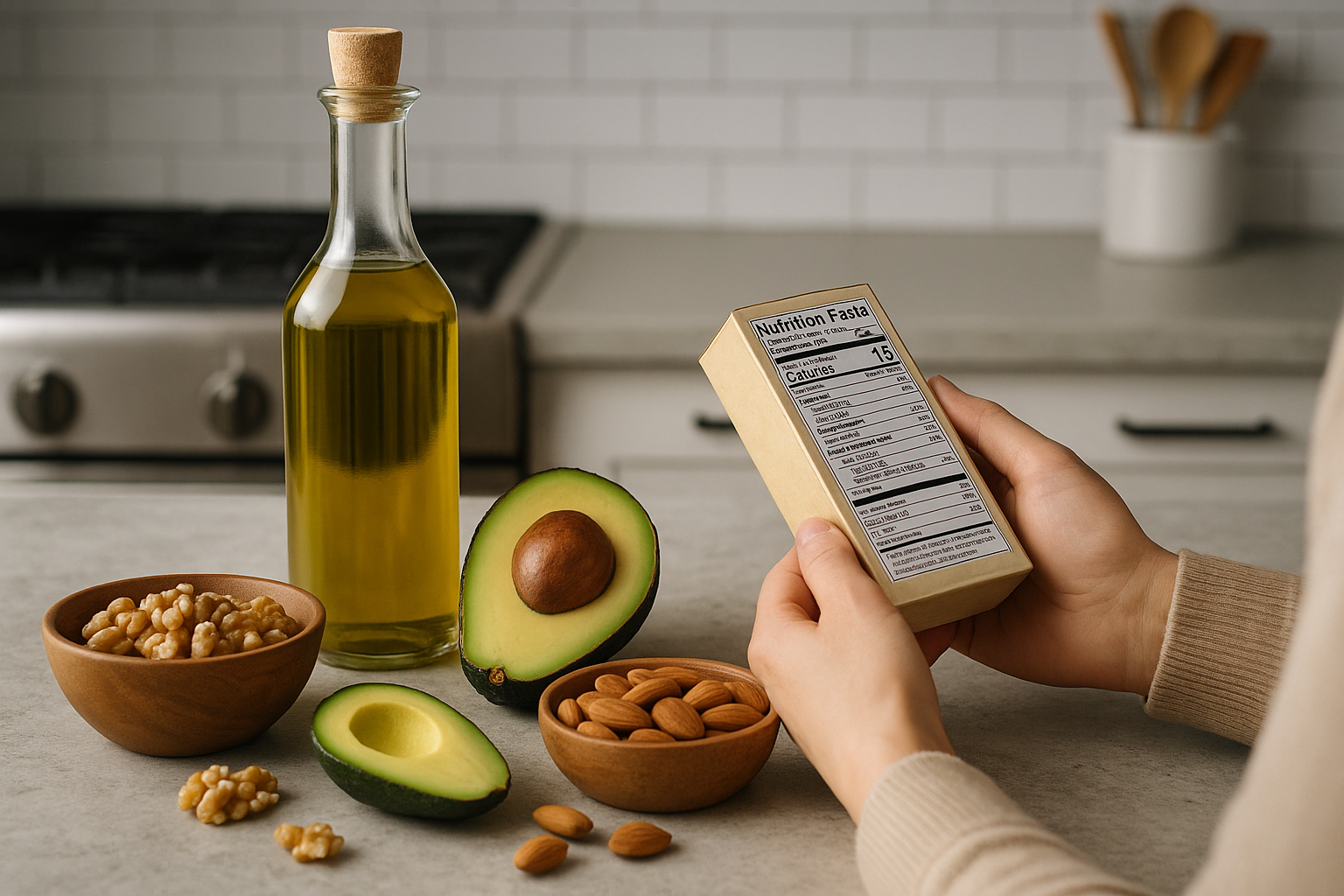Surprising Gut Health Habits a Dietitian Recommends to Lower Cholesterol
In recent years, the gut has emerged as a crucial player in maintaining overall health, particularly in managing cholesterol levels. Surprising as it may seem, the gut microbiome—a complex community of trillions of microorganisms residing in our intestines—has a profound impact on cholesterol metabolism. Dietitians are now focusing on how nurturing a healthy gut can be a powerful strategy for lowering cholesterol naturally. This article delves into the unexpected gut health habits that can contribute to cholesterol management, offering insights into how these practices work and why they are recommended by experts in the field.
Embrace Fermented Foods

Fermented foods are a cornerstone of gut health due to their rich probiotic content. These foods, such as yogurt, kefir, sauerkraut, and kimchi, introduce beneficial bacteria into the gut, which can help balance the microbiome. Research indicates that certain strains of probiotics can break down bile acids, which are synthesized from cholesterol. This process reduces the reabsorption of cholesterol in the intestines, leading to lower blood cholesterol levels. Incorporating a variety of fermented foods into your diet not only supports gut health but also aids in lowering LDL cholesterol, the type often referred to as "bad" cholesterol.
Increase Fiber Intake

Fiber is a dietary component that plays a dual role in supporting gut health and managing cholesterol levels. Soluble fiber, found in oats, beans, lentils, and fruits, forms a gel-like substance in the gut that binds to cholesterol and prevents its absorption into the bloodstream. Additionally, fiber serves as a prebiotic, feeding the beneficial bacteria in the gut and promoting a healthy microbiome. Dietitians recommend aiming for at least 25-30 grams of fiber daily to harness these benefits. A diet rich in fiber not only aids digestion but also significantly contributes to maintaining healthy cholesterol levels.
Choose Healthy Fats Wisely

Not all fats are created equal when it comes to gut health and cholesterol management. Incorporating healthy fats, such as those found in avocados, nuts, seeds, and olive oil, can positively influence the gut microbiome. These fats are rich in monounsaturated and polyunsaturated fatty acids, which have been shown to reduce LDL cholesterol levels. Moreover, healthy fats help maintain the integrity of the gut lining, reducing inflammation and supporting overall gut health. By making informed choices about dietary fats, individuals can support both their gut and cardiovascular health effectively.
Stay Hydrated with Herbal Teas

Hydration is often overlooked in discussions about gut health, yet it plays a crucial role in maintaining a healthy digestive system. Herbal teas, such as peppermint, ginger, and chamomile, offer a hydrating alternative to sugary beverages and have additional gut-friendly properties. These teas can soothe the digestive tract, reduce inflammation, and support the growth of beneficial gut bacteria. Proper hydration ensures that fiber can effectively aid in digestion and cholesterol management. Including herbal teas in your daily routine can be a simple yet effective way to support gut health and lower cholesterol levels.
Limit Processed Foods

Processed foods are typically high in unhealthy fats, sugars, and additives, all of which can disrupt the gut microbiome and elevate cholesterol levels. Dietitians emphasize the importance of minimizing processed foods in favor of whole, nutrient-dense options. Whole foods provide essential nutrients that support gut health, such as vitamins, minerals, and antioxidants. By reducing processed food intake, individuals can decrease inflammation, promote a balanced gut microbiome, and subsequently lower cholesterol levels. This habit not only benefits gut health but also contributes to overall well-being.
Practice Mindful Eating

Mindful eating is a practice that encourages awareness and appreciation of the eating experience, which can positively influence gut health. By slowing down and savoring each bite, individuals can improve digestion and enhance nutrient absorption. Mindful eating also helps in recognizing hunger and satiety cues, preventing overeating and supporting weight management. This practice can reduce stress, a known disruptor of gut health, and promote a balanced microbiome. By fostering a mindful approach to meals, individuals can support their gut health and contribute to cholesterol management.
Incorporate Omega-3 Rich Foods

Omega-3 fatty acids, found in fatty fish like salmon, mackerel, and sardines, as well as in flaxseeds and walnuts, are known for their anti-inflammatory properties. These healthy fats can positively impact the gut microbiome by promoting the growth of beneficial bacteria and reducing inflammation in the digestive tract. Omega-3s have also been shown to lower triglycerides and improve overall cholesterol profiles. Including omega-3 rich foods in the diet supports cardiovascular health and enhances gut function, making it a valuable habit for lowering cholesterol naturally.
Engage in Regular Physical Activity

Physical activity is a key component of a healthy lifestyle and has significant benefits for both gut health and cholesterol management. Exercise promotes regular bowel movements, reduces inflammation, and enhances the diversity of the gut microbiome. It also helps in maintaining a healthy weight, which is crucial for managing cholesterol levels. Dietitians recommend incorporating a mix of aerobic exercises, strength training, and flexibility exercises to support overall health. By staying active, individuals can improve their gut health and effectively manage their cholesterol levels.
Prioritize Sleep and Stress Management

Sleep and stress management are often overlooked aspects of gut health but are essential for maintaining a balanced microbiome. Poor sleep and chronic stress can disrupt the gut-brain axis, leading to imbalances in gut bacteria and elevated cholesterol levels. Dietitians recommend establishing a consistent sleep routine and incorporating stress-reducing practices such as yoga, meditation, or deep breathing exercises. By prioritizing rest and managing stress, individuals can support their gut health and contribute to better cholesterol management.
Experiment with Intermittent Fasting

Intermittent fasting, a dietary approach that involves cycling between periods of eating and fasting, has gained popularity for its potential health benefits. This eating pattern can positively influence gut health by allowing the digestive system to rest and repair. It may also promote the growth of beneficial gut bacteria and improve cholesterol metabolism. Dietitians suggest experimenting with intermittent fasting under professional guidance to determine its suitability for individual health needs. By incorporating this practice, individuals may experience improved gut health and lower cholesterol levels.
Integrating Gut Health into Cholesterol Management

The intricate relationship between gut health and cholesterol levels underscores the importance of adopting holistic lifestyle habits. By embracing practices such as consuming fermented foods, increasing fiber intake, choosing healthy fats, and prioritizing sleep, individuals can support their gut microbiome and effectively manage cholesterol. These surprising yet impactful habits recommended by dietitians offer a comprehensive approach to health that extends beyond traditional dietary advice. By integrating these habits into daily life, individuals can foster a healthier gut and achieve better cholesterol control, ultimately enhancing their overall well-being.
